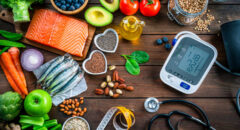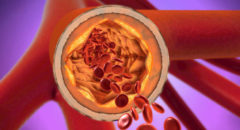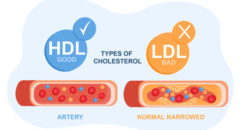
(BlackDoctor.org) — Heart disease is the number one killer of American
women. Heart disease is a group of diseases of the heart and the blood vessel
system in the heart. Coronary heart disease, the most common type, affects the
blood vessels of the heart. It can cause angina or a heart attack. Angina is a
pain in the chest that happens when the heart does not get enough blood. It may
feel like a pressing or squeezing pain, often in the chest, but sometimes in the
shoulders, arms, neck, jaw, or back. Having angina means you’re more likely to
have a heart attack. A heart attack happens when a blood vessel is blocked for
more than 20 minutes.
Signs of a heart attack:
• pain or discomfort in the center of the chest for more than 20 minutes
• pain or discomfort lasting more than 20 minutes in other parts of the upper
body, including the arms, back, neck, jaw, or stomach
• other symptoms, including shortness of breath (feeling like you can’t get
enough air), breaking out in a cold sweat, nausea (feeling sick to your
stomach), or feeling faint
Other symptoms women may have
include:
• unusual tiredness
• trouble sleeping
• problems breathing
• indigestion (upset stomach)
• anxiety (feeling uneasy or worried)
If you have any of these symptoms, call 911.
African American women are 35% more likely than non-Hispanic white women to
die from heart disease. Diabetes, high blood pressure, high cholesterol, lack of
exercise, and smoking all put women at risk for heart disease. Studies have
shown that African Americans don’t get the same care for heart disease as whites
because they don’t get the same tests and treatments.
You have the power to fight heart disease! Read on for some tips on keeping
your heart healthy.
• Don’t smoke. If you smoke, try to quit. For help along the
way, check out our Quitting Smoking section.
• Keep a healthy weight.
• Get moving. Aim for 30 minutes of exercise a day, most
days of the week. Try taking the stairs instead of the elevator. Or, walk during
breaks at work.
• Eat heart-healthy foods. Eat whole-grain foods,
vegetables, and fruit. Choose lean meats and low-fat cheese and dairy products.
Limit foods that have lots of saturated fat, like butter, whole milk, baked
goods, ice cream, fatty meats, and cheese.
• Know your numbers. Ask your doctor to check your blood
pressure, cholesterol (total, HDL, LDL, and triglycerides) and blood glucose
(sugar).








